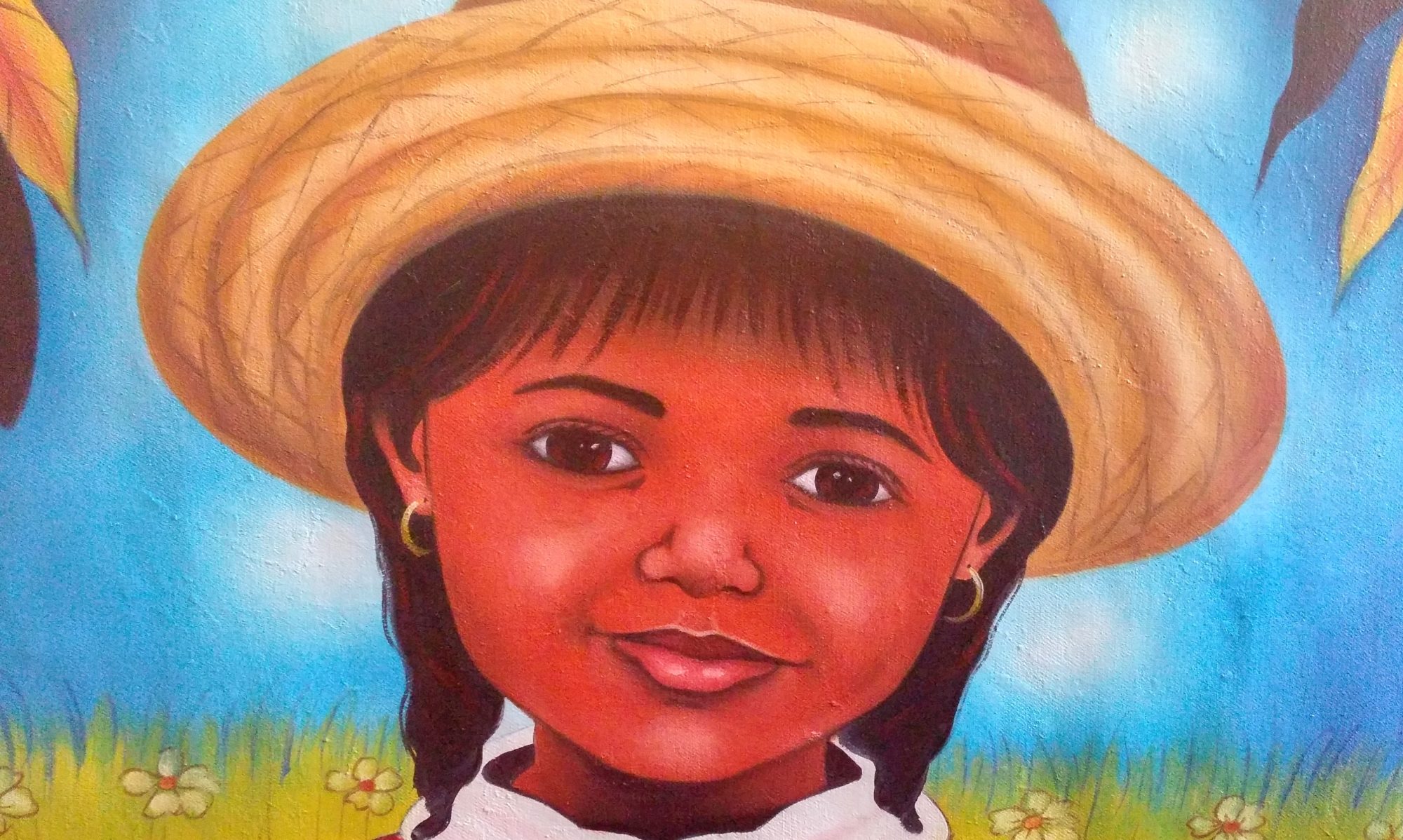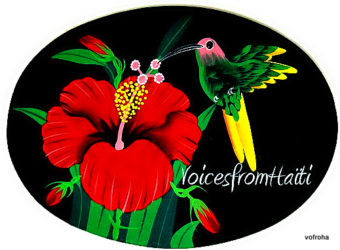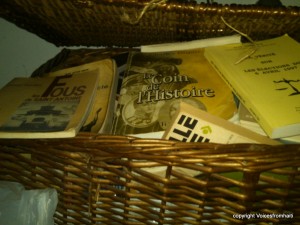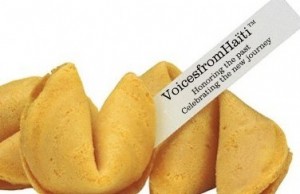 You crumple the fortune cookie after your mountain of General Tso’s. Inside it you find—in addition to the usual—Chinese characters with the English approximation in parentheses, teaching you a word you didn’t know you wanted to learn. To my non-Haitian friends who are itching to learn a new Kreyòl word today, it is my pleasure to offer you the term “Ja,” pronounced /΄ʒæ /. The “J” sounds like the “s” in vision. The “a” sounds like the one in “art.” Never mind all of that. Just think Zsa Zsa Gabor.
You crumple the fortune cookie after your mountain of General Tso’s. Inside it you find—in addition to the usual—Chinese characters with the English approximation in parentheses, teaching you a word you didn’t know you wanted to learn. To my non-Haitian friends who are itching to learn a new Kreyòl word today, it is my pleasure to offer you the term “Ja,” pronounced /΄ʒæ /. The “J” sounds like the “s” in vision. The “a” sounds like the one in “art.” Never mind all of that. Just think Zsa Zsa Gabor.
Ja is a common noun without a plural form. In life, if you’re lucky, you get (and need) only one. The word may be defined as: 1. Fortune. 2. Windfall 3. Mad riches like that 1/2 a billion Powerball pot-of-gold several months ago. But Unlike winning the lottery—immediately after being struck by lighting for the third time under the same tree—you would not know when, how, or where to take a chance on finding a ja.
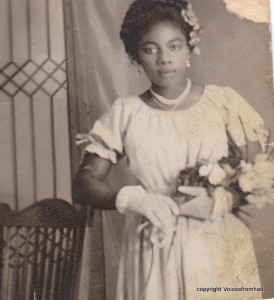 Imagine inheriting an old house on several acres of so-so land from Aunt Agnes. The real-estate market suddenly takes off. Developers move in. You’re pretty confident the upswing will last forever. So, you take out twice the maximum possible mortgage on the property. Now, you’re facing foreclosure. You start to pack the few belongings your aunt had left in the old house, taking care not to break the spines of old photo albums you never had time to open. Underneath a loose floorboard you find a burlap bag full of rare coins worth millions. That might explain what a ja is. But not really.
Imagine inheriting an old house on several acres of so-so land from Aunt Agnes. The real-estate market suddenly takes off. Developers move in. You’re pretty confident the upswing will last forever. So, you take out twice the maximum possible mortgage on the property. Now, you’re facing foreclosure. You start to pack the few belongings your aunt had left in the old house, taking care not to break the spines of old photo albums you never had time to open. Underneath a loose floorboard you find a burlap bag full of rare coins worth millions. That might explain what a ja is. But not really.
With Haiti constantly changing, some might say the days of finding a ja might have gone the way of the ancestors. That may be true, but the word’s definition has become so dynamic that people are finding ja all the time. Rarely does a ja look like one. One man’s junk is another’s ja. You’ve heard stories of someone paying two dollars at a flea market for a dusty painting that turns out to be a Rembrandt. Whether or not a ja is considered a fortune depends on its finder.
One of my favorite ja stories belongs to L.H. “I took my mother for somewhat of a hoarder,” L.H. had written on her Facebook page. While her mother was on vacation last Christmas, she took the opportunity to de-clutter. She nearly fainted with joy when she discovered the ja of rare books, many of them first editions by Haitian authors like Jacques “Masters of the Dew” Roumain. L.H. could not believe her fortune. Her friends were beyond thrilled. A few admitted to being a little jealous.
 Around that time, I visited a relative who’s known for “saving” stuff. In a corner of the house was a cabinet bursting with old vinyl records. I could not believe what I saw. There were original (some signed) records by Billie Holiday, Mahalia Jackson, Harry Belafonte, Lena Horne, Ray Charles, Ayizan, Michael Jackson, and too many others to mention. “You’ve got a real ja here,” I said.
Around that time, I visited a relative who’s known for “saving” stuff. In a corner of the house was a cabinet bursting with old vinyl records. I could not believe what I saw. There were original (some signed) records by Billie Holiday, Mahalia Jackson, Harry Belafonte, Lena Horne, Ray Charles, Ayizan, Michael Jackson, and too many others to mention. “You’ve got a real ja here,” I said.
“I know,” the owner gave a sly smile.
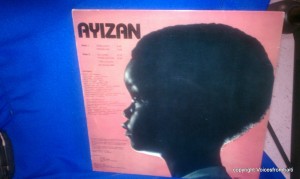 I was so giddy I photographed some of the album covers. I sent a picture to a guitarist friend of the now-defunct Haitian Roots band, Ayizan. “Where did you find this?” my friend wanted to know. He was so inspired that he decided to pick up his guitar after years of ignoring it. That was a double ja!
I was so giddy I photographed some of the album covers. I sent a picture to a guitarist friend of the now-defunct Haitian Roots band, Ayizan. “Where did you find this?” my friend wanted to know. He was so inspired that he decided to pick up his guitar after years of ignoring it. That was a double ja!
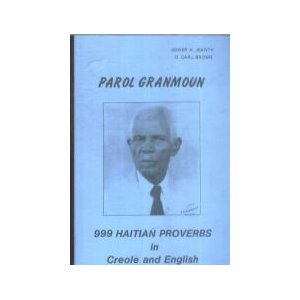 Searching my bookshelves for something inspiring to read this morning, I found a true treasure. The book’s cover is cracked and discolored, but the contents are like gold coins. The book is Edner A. Jeanty’s 999 Haitian Proverbs in Creole and English. Sure, most of these proverbs are available on the Web. Holding the book in my own hands, however, felt extra. . . rich.
Searching my bookshelves for something inspiring to read this morning, I found a true treasure. The book’s cover is cracked and discolored, but the contents are like gold coins. The book is Edner A. Jeanty’s 999 Haitian Proverbs in Creole and English. Sure, most of these proverbs are available on the Web. Holding the book in my own hands, however, felt extra. . . rich.
I hope you had fun learning the word Ja. If you are a Haitian reading this, you knew I would have had a tough time trying to define it. If you have examples you would like to share, inbox them to Voices. I’ll be glad to post them here and on our Facebook page.
Bonheur et santé,
kdu
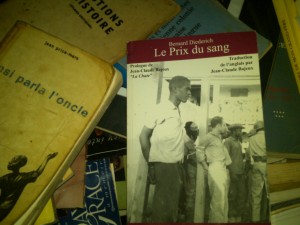
PS. I just went to the kitchen for a cup of coffee. “Here’s a bunch of Haiti pictures,” My husband said, giving me a manila envelope. He had been emptying out an old bag of clothes that had been in the basement. I had forgotten about those pictures. Among toothless cousins in Haiti who think they are so incredibly hot now, I find a picture of DJ One who had worked at Jean “The Agronomist” Léopold Dominique’s radio station. DJ One perished in the earthquake nearly three years ago. I wonder if and where there are other pictures of him today. I call that find a ja. Wouldn’t you?
Katia D. Ulysse
